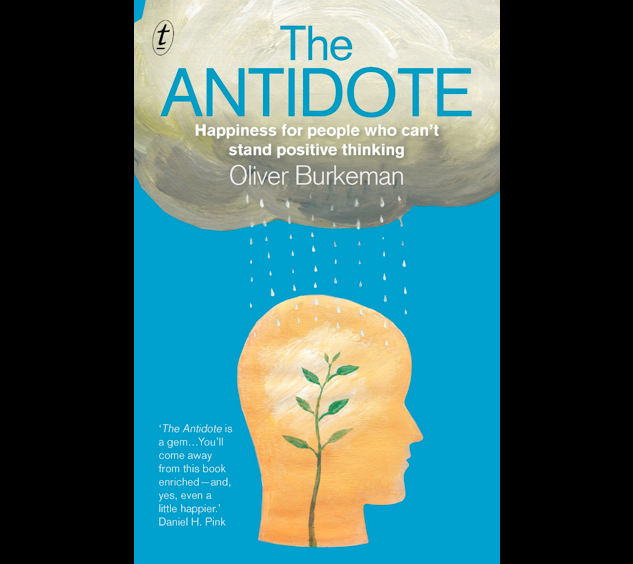
For anybody struggling — whether it’s with sickness, relationships, or finishing that last task for your boss — phrases like “but it’s not that bad” and “you’ll be fiiiiiiine” are sometimes more harmful than helpful. Guardian journalist Oliver Burkeman seeks to challenge these frustrating fragments of advice with what he calls “the negative path to happiness” — an empowering yet firmly realistic view that can actually be useful.
If you find the above phrases patronising, or motivational speakers irritating, the “negative path” may be for you. The first question you may ask is, ‘What is the negative path? Does that even make sense?’ After reading The Antidote, I believe it does.
In the simplest terms, the negative path is a notion that relies on accepting uncertainties, insecurities, and the possibility of failure and amending your plans to take these factors into account. Having already familiarised yourself with the worst possible outcomes, they will (in theory) be less demoralising if they do occur. It’s that same drive that encourages you to have a back-up career, just in case that wacky invention of yours doesn’t make you a millionaire overnight, but Burkeman extends it to cover even the everyday parts of life. By drawing on a mixture of philosophy, spirituality, psychology, and personal experience, he outlines several easy practices that may be drawn-on daily to ease stress and continue pursuing our goals.
It’s not a 10-step guide to happiness, though; Burkeman brings us along on the path he took to reach these conclusions. Readers are invited to (vicariously) experience the mild-embarrassment of yelling things out on a train, or attempting to buy a large, robotic pubic louse for his boss. But we are also able to experience his own doubts about the project and the people it leads him to, questioning the words of motivational speakers and “negative thinkers” alike. This balance makes The Antidote accessible, because he never demands that we conform to his way of thinking, or follow instructions. He merely lays out his process and asks that we consider it. Coupled with his sarcastic humour and down-to-earth tone, the book is as enjoyable as it is helpful.
I should note that if you are somebody who believes wholeheartedly in continuous optimism and the words of motivational speakers — even better, if you are someone who succeeds because of this — then this is not the book for you. The Antidote is for those of us who feel let down by such relentless positivity, or who prefer advice that is grounded in the reality of both positive and negative experiences. As most advice is heavily weighted towards the first group of people, Burkeman’s book evens the playing field a little.
For all the hype surrounding The Antidote, it is not a text that will instantly change your entire life — but that is never what the book promises. Rather, Burkeman suggests that you ‘treat these ideas as a toolkit, from which tools can be borrowed as necessary’ — an approach that is far more suited to the rush of modern life than a strict set of guidelines. If you’re looking for a read that will open your mind and save you some stress, without ordering you to ignore the negative emotions and possibilities that we all face at times, maybe it’s time to try a different path.
—
Book Publisher: Text Publishing
Release Date: September 2013
RRP: $23.99
Format: B-Format Paperback, e-book.
———-
